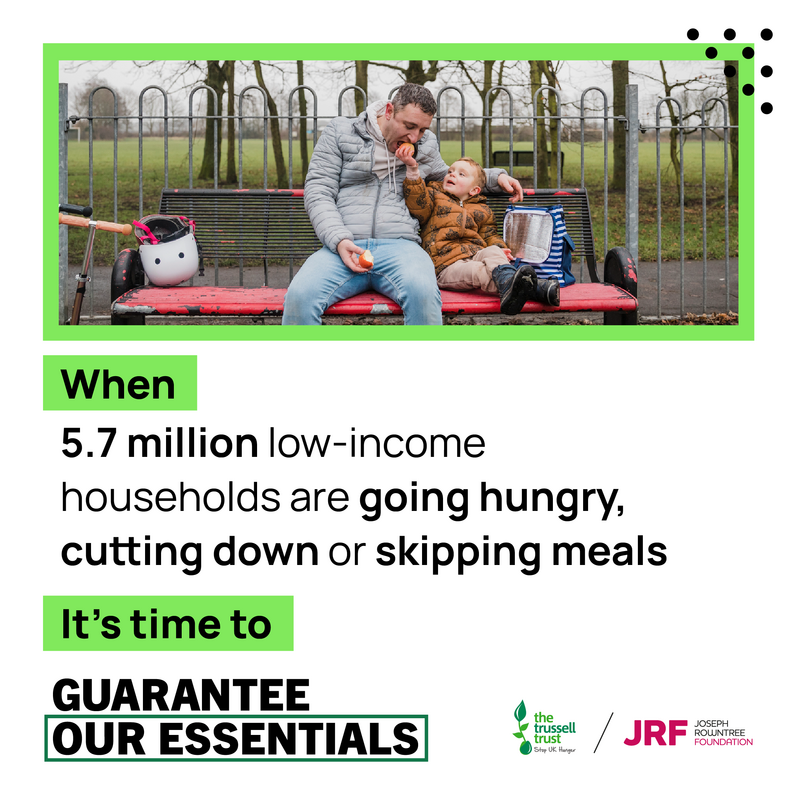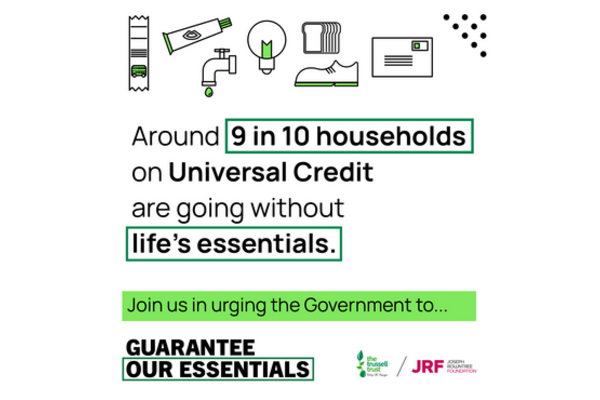The latest Joseph Rowntree Foundation Cost Of Living tracker is out now and the findings reveal a horrendous new normal.
It’s why we call urgently on the Government to ensure the Universal Credit basic rate at least covers #OurEssentials and can’t be pulled below this level.
The impact of rising prices while having low incomes and no savings, especially for food has meant 5.5 million low-income households have had to cut down on or skip meals because they can’t afford food. Four million reported going hungry, and 2.7 million have reported having a poor diet because of the cost of living crisis.
Low-income households are struggling to afford their bills, with 4.5 million in arrears, and 2.6 million holding high-cost credit loans with loan sharks, doorstep lenders, payday lenders or pawnshops. Given the economic outlook of inflation falling slowly and interest rates remain high for some time, we are concerned about low-income households’ access to the lifeline of affordable credit, as 2.8 million have been declined loans in the last two years. We’re also deeply concerned about the health and well-being impacts of the crisis, with millions unable to afford a healthy diet, and those going without essentials more likely to need NHS healthcare services.
For low-income households on Universal Credit, around 9 in 10 are going without essentials for the third survey in a row, despite the usual uprating of benefits with inflation and temporary cost of living payments. These levels of hardship cannot become baked in as the UK’s new normal.
Find out more about here







